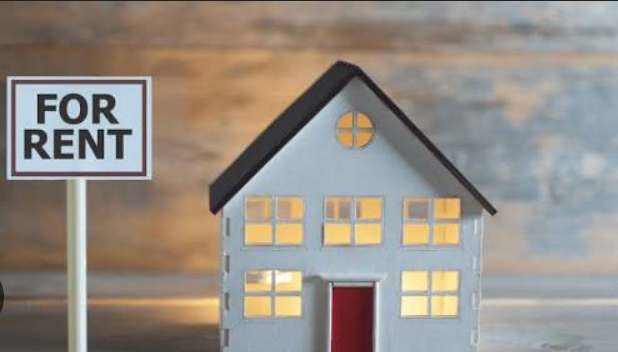

In what many Nigerians are describing as a long-overdue step towards protecting tenants from exploitation, the House of Representatives has proposed that rent increases across the country should not exceed 20 percent of the existing rate, regardless of renovations or other justifications from landlords. The decision, which has sparked heated debate across social and political spaces, followed a motion presented by Hon. Bassey Akiba, representing Calabar Municipality/Odukpani Federal Constituency, titled “Need to Regulate Arbitrary Rent Increase and Protect Tenants from Exploitation.”
The motion received overwhelming support on the floor of the House, as lawmakers decried the unchecked rise in rent prices across major Nigerian cities—particularly Lagos, Abuja, and Port Harcourt—where many tenants struggle yearly to keep up with landlords’ demands. Akiba emphasized that the situation has become a national crisis, with housing costs now consuming a disproportionate portion of average household income. “The dream of owning a home remains far-fetched for most Nigerians,” he said, “and even the basic act of renting a decent apartment has become a nightmare.”
Following his motion, the House resolved that no landlord should be permitted to raise rent beyond 20 percent of the current rate. The lawmakers also urged the Federal Government to prioritize investment in affordable housing projects to ease the burden on citizens and stabilize the rental market. They argued that without government-backed low-cost housing, Nigeria’s real estate sector would remain largely speculative, pricing ordinary citizens out of shelter—a basic human need.
In addition to the rent proposal, the House issued another directive to the Inspector General of Police and the Controller General of the Nigeria Security and Civil Defence Corps (NSCDC), ordering that all plainclothes officers at checkpoints must be properly identified. Lawmakers described the current lack of visible identification as a breach of international standards and a serious threat to accountability, noting that many citizens have suffered harassment and extortion from individuals posing as security operatives.
The move to regulate rent echoes a similar call earlier this year by the Lagos State House of Assembly, which urged the state’s Attorney-General and Commissioner for Justice to enforce the Lagos State Tenancy Law of 2015. The law already limits arbitrary rent hikes and provides tenants with legal options to challenge exploitation. Sa’ad Olumoh, who sponsored the Lagos motion, had lamented that while the law exists, enforcement has been weak, allowing landlords to double or even triple rents without consequence.
Public reaction to the federal proposal has been divided. On one hand, many Nigerians, especially tenants, see the move as a welcome relief after years of unchecked rent increases. On Linda Ikeji’s Blog, where the story broke earlier today, several readers applauded the House for finally addressing an issue that directly affects millions of households. One commenter wrote, “House of Reps, if this is the only thing you achieve this year, you will be honoured. Rent increase is becoming alarming in Nigeria because no one checks it.”
However, not everyone is impressed. Some Nigerians argue that the lawmakers are out of touch with the realities of the economy. With inflation at record highs, a depreciating naira, and skyrocketing building material costs, landlords claim they are also struggling to survive. “If the price of cement, iron rods, and fuel has increased by over 200 percent since subsidy removal,” one reader argued, “how can the House expect landlords to only raise rent by 20 percent? This is unrealistic.”
Others accuse the lawmakers of hypocrisy, pointing out that many members of the National Assembly are landlords themselves. “How sincere are the Reps when most of them are also the ones collecting millions in rent from tenants?” one commenter questioned. Another sarcastically wrote, “You want to be a tenant forever and ever?”—reflecting the deep class divide between renters and property owners.
Still, housing advocates insist that the proposal, if implemented, would bring sanity to Nigeria’s chaotic rental market. They note that the current system—where landlords can demand any amount they wish without oversight—has worsened inequality, driven up urban migration pressures, and pushed many families into homelessness. Some civil groups have gone further, calling for a national rent control board that would monitor property pricing and ensure uniform enforcement across states.
Meanwhile, landlords are warning that any attempt to impose such restrictions could backfire. A property owner identified as Victor Osimhen commented that most landlords would simply evict tenants who refuse new rent terms and convert their properties to short-term rentals or Airbnb listings to earn in foreign currency. “If an apartment was ₦4 million last year,” he explained, “by the time the old tenant vacates, it becomes ₦5.2 million plus VAT, maintenance, and agency fees—totaling almost ₦8 million. The government should focus on tax policies and inflation, not our pockets.”
Economists have also weighed in, warning that rent control, while well-intentioned, could discourage private investment in housing construction, leading to fewer available homes in the long term. They argue that the root cause of high rent is not greed but inflation and policy failure. Without addressing the soaring cost of building materials, land acquisition, and permits, any cap on rent increases may simply drive more landlords out of the rental market.
Nonetheless, the sheer scale of public frustration suggests that something must change. In Lagos, tenants report annual rent increases of up to 100 percent, with some forced to relocate to distant suburbs due to unaffordable prices in the city center. The situation is even worse for young professionals and low-income earners who must pay one or two years’ rent upfront—often at rates that exceed their total annual earnings.
As debate rages on, the Reps’ proposal has at least ignited a national conversation about fairness in housing. Whether or not the bill becomes law, it has exposed the widening gap between Nigeria’s lawmakers and the lived reality of ordinary citizens. Many observers say the issue will test the sincerity of the Tinubu administration’s commitment to easing economic hardship.
For now, tenants are cautiously optimistic but skeptical. “Let’s see if they can actually pass it and enforce it,” a Lagos resident commented. “We’ve heard promises like this before. Until we see a real law that protects tenants and landlords alike, it’s just another political statement.”
As Nigerians await the next step, one thing is clear: the battle over rent control is far from over. In a nation where shelter has become a luxury, the House of Representatives’ 20 percent proposal has rekindled hope for millions—but also reignited questions about economic justice, political will, and the true meaning of governance in a country where both tenants and landlords are fighting to survive.


